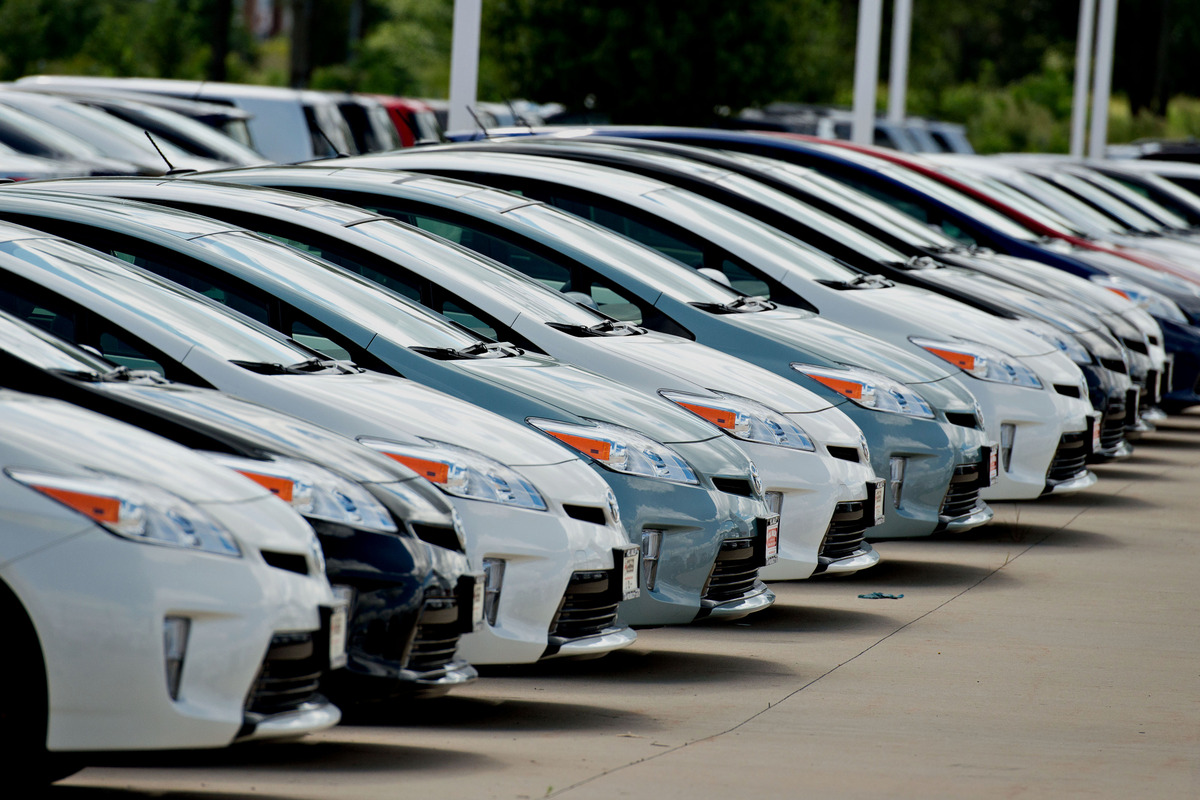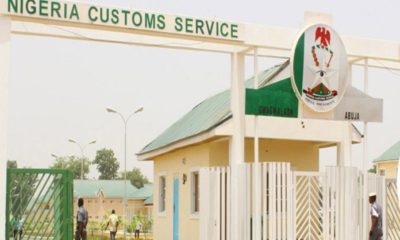- Customs CG Wants Import Duty on Vehicles Reduced to 45%
The Nigeria Customs Service is seeking a reduction in the tariff for imported vehicles from the current rate of 70 per cent of the cost of such vehicles to 45 per cent.
The Comptroller-General of Customs, Col Hameed Ali (retd.) said this on Monday in Abuja during a media briefing to mark the 2019 international Customs day.
Ali said that with the high rate of smuggling of vehicles into the country which was caused by the high tariff on imported vehicles, it had become imperative to reduce the tariff to stem the tide.
According to him, any new vehicle imported into the country attracts an import duty of 35 per cent and an additional levy of 35 per cent.
This, he noted, brought the total duty payable on such a vehicle to about 70 per cent.
He described the 70 per cent being charged by the government as high, adding that time had come for it to be reduced to 45 per cent.
To achieve this, he said the government could still retain the 35 per cent import duty, while the additional 35 per cent levy could be tinkered with by bringing it down to ten per cent.
This, he explained, would bring the total import duty on new vehicles to 45 per cent.
He said, “We have 35 per cent duty and 35 per cent levy and so if you import a brand new vehicle into Nigeria, you pay 70 per cent duty.
“From what we have done and based on statistics, we discovered that this duty has now driven most of our importers to our neighbouring ports and also it has increased the rate of smuggling into this country of new vehicles.
“Having interacted with our stakeholders, we discovered from what they said that the sudden increase in duty is what is driving them.
“And since 35 per cent duty cannot be tinkered with, the one that can be tinkered with (is the 35 per cent levy) which is a policy by the Nigerian government. The 35 per cent was put in order to encourage our automotive industry to ensure that it is developed.
He added, “If we reduce the levy, the volume of cars that would be imported into Nigeria will increase and the revenue from the Nigeria Customs Service will increase.
“So we are advising that the government should review the levy and we are asking that it should be reduced to about 10 per cent.
“If you do that, then it will mean that the collective duty on a new vehicle will be about 45 per cent. That is 35 per cent duty and ten per cent levy.
“With that, we will eventually get an increase in the volume of vehicles that are imported, smuggling will be reduced and, therefore, we will realise more revenue and the lives of our people will be saved.”
Speaking on the achievements of the service, he said that since 2015, revenue generation had been on the increase.
He said between 2015 and 2018, the service generated a total of N4.04tn as revenue for the federation.
Giving a breakdown of the revenue collection figure, he said the service generated N904.07bn in 2015.
However, he noted that revenue collection dropped to N898.67bn in 2016 as a result of the foreign exchange restrictions on 41 items by the Central Bank of Nigeria.
In 2017, Ali said revenue collection rose to N1.03tn, adding that in the 2018 fiscal period, the service generated its highest ever revenue figure of N1.2tn.
He said, “Our experiences within these years have shown that with an increased level of compliance from our stakeholders and integrity on the part of all operatives, the nation can earn more revenue needed to build the Nigeria of our dream.”
In the area of seizures, he said that the service seized 32,335 items with duty paid value of N93.38bn between 2015 and 2018.
Giving a breakdown of the figure, he said that 5,485 items with duty paid value of N7.51bn were seized in 2015 while 2016 and 2017 had 5,923 and 4,708 items with duty paid value of N10.14bn and N12.58bn respectively.
In 2018, he said 5,219 items were seized with duty paid value of N62.13bn.
Ali, however, lamented that despite the successes, the service was still facing many challenges.
He gave some of them as porous borders, inadequate non-intrusive equipment, hostile border community dwellers, high level of non-formal trades, low implementation of ECOWAS Protocol on Transit and low level of compliance among international trade actors.
He said while the government was stepping up actions to equip the service, there was the need for stakeholders to support the agency towards a secure, seamless and transparent trade across the country’s borders.

 Forex3 weeks ago
Forex3 weeks ago


 Naira2 weeks ago
Naira2 weeks ago
 Billionaire Watch2 weeks ago
Billionaire Watch2 weeks ago




 Naira2 weeks ago
Naira2 weeks ago




 Naira2 weeks ago
Naira2 weeks ago




 Naira1 week ago
Naira1 week ago




 Naira4 weeks ago
Naira4 weeks ago




 Naira3 weeks ago
Naira3 weeks ago














